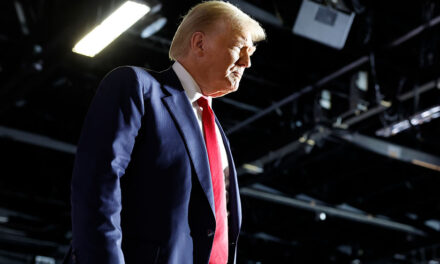We support our Publishers and Content Creators. You can view this story on their website by CLICKING HERE.
Dr. Peter Breggin: UN Pact for the Future paves the way toward NEW WORLD ORDER
- The United Nations (UN) has passed a new pact through the General Assembly, establishing a framework for global governance during crises. This grants the UN unprecedented authority to take control in situations affecting multiple nations.
- The new framework undermines national sovereignty, as it allows the UN to override national laws and governance in times of crisis. The pact was passed with minimal objections, effectively creating international law for global governance.
- Critics warn that granting special powers to a centralized authority could lead to the continuous creation of emergencies. This could enable globalists to exploit these powers for their own purposes, potentially eroding democratic institutions.
- The new UN pact coincides with growing concerns over AI and its implications for human autonomy. Experts like Dr. Peter Breggin caution that this technological advancement raises serious ethical considerations and challenges the concept of human labor and control.
- The article concludes by emphasizing the critical need to reevaluate the global governance framework. The implications of these changes demand attention to preserve the rights and freedoms of nations and individuals, challenging the balance of power in the global community.
In a recent “Health Ranger Report” interview with the Health Ranger Mike Adams, renowned psychiatrist and author Dr. Peter Breggin shed light on a critical development in global governance.
According to Breggin, recent legislation passed by the United Nations through the General Assembly has granted unprecedented authority to the UN in times of crisis, effectively undermining national sovereignty and paving the way for a centralized global authority.
The veteran psychiatrist and legal expert explained that the new pact, called the Pact for the Future, which was passed without substantial objections, establishes a framework for global governance that allows the UN to take control in any situation that poses a threat to multiple nations. (Related: UN adopts “Pact for the Future,” laying foundation for new “global order.”)
“They got intimidated to pass now a global, legalized form of governance. The UN has created pacts with every nation because no nation objected. It was consensus. And it was very cleverly done to make it very easy for the countries to just do it and not really even have to vote much, except no objection verbally from the court,” said Breggin.
“It was quite bizarre. So now we have international law that says there is a world governance. And these pacts specify that in any potential threat or shock that would affect more than one nation, the UN must take over and be in charge.”
This move, deeply rooted in the UN’s long-standing push for world governance, raises serious concerns about the future of national autonomy and democratic institutions. The significance of this development cannot be overstated.
Breggin emphasized that this pact was designed to create an “emergency platform” for the UN to manage crises, going beyond the scope of the World Health Organization (WHO) to involve a broader range of entities, including the UN army, the World Bank and other affiliated organizations.
Globalists behind Pact for the Future will keep on declaring emergencies
Adams, who has been at the forefront of exposing the dangers of globalist policies, emphasized the worrying implications of granting such powers to a centralized authority.
“Any entity that is granted special powers during an emergency will always find a way to keep creating emergencies,” Adams pointed out, suggesting that the globalists behind these policies could continuously exploit these powers for their own ends.
Breggin’s insights highlight the critical moment in history mankind is facing, as these changes could fundamentally shift how global societies are structured. The erosion of national sovereignty through international law and the establishment of a global governance framework poses significant threats, not just to individual nations, but to the very fabric of democracy and personal freedom.
The globalist agenda, which seeks to depopulate and weaken populations, has been evident in recent years, particularly through the exploitation of pandemics like the Wuhan coronavirus (COVID-19). However, the new UN pact marks a significant escalation in their power grab, creating a precedent for the UN to control crucial aspects of life, health and governance across multiple nations simultaneously.
Breggin’s analysis also points to the broader implications of these changes, particularly in the context of the rise of artificial intelligence (AI) and robotic systems. As these technologies advance, the need for human control and ethical considerations becomes ever more urgent. The globalists’ push for technological dominance and the potential to replace human labor with AI raises serious concerns about the future of human autonomy and the very concept of what it means to be human.
In conclusion, the establishment of global governance through this UN pact represents a critical turning point in the evolution of world politics. It raises profound questions about the future of national sovereignty, democratic institutions and the balance of power in the global community. The implications of these changes demand urgent attention and a reevaluation of the global governance framework to ensure that the rights and freedoms of nations and individuals are preserved.
Follow Globalism.news for more news about the globalist United Nations.
Watch the full conversation between Dr. Peter Breggin and the Health Ranger Mike Adams below.
This video is from the Health Ranger Report channel on Brighteon.com.
More related stories:
Newman: “Climate change” scam will enable globalist United Nations to enforce its will on humanity.
World Economic Forum’s Young Global Leaders helping advance its quest for global governance.
Sources include:

 Conservative
Conservative  Search
Search Trending
Trending Current News
Current News 





